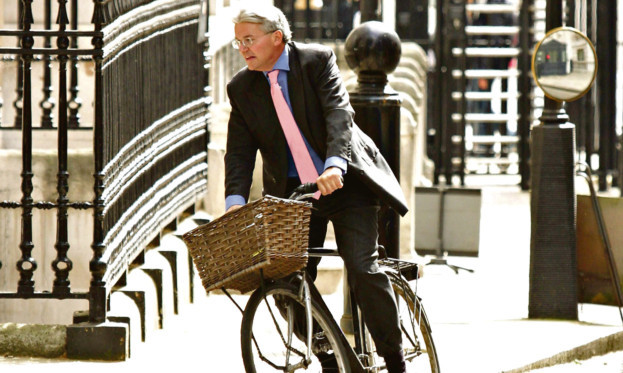
If you’re a regular reader of my column you’ve probably gathered that I am no great fan of politicians, especially those feeding off the fatted calf in Westminster.
Many seem to live on another planet where fuel poverty, food banks, inadequate housing, social deprivation and unemployment don’t exist.
Thankfully there are a lot more who believe in what they stand for and are convinced they are there for the greater good.
One such individual may well be former Tory chief whip Andrew Mitchell, the MP at the centre of the “Plebgate” affair.
That’s alleged to have been a fabricated accusation one which initially lost him respect, but that now threatens the trust the general public have for the police.
Accused of swearing and calling officers “F****** plebs”, a charge he always denied, Mitchell eventually got the chance to face his accusers at a meeting last October.
For reasons known only to the three attending officers, afterwards he was further accused of not apologising and not providing a proper account of the meeting.
But Mr Mitchell had taped the meeting and the recording proved the officers had lied and not him. You don’t say!
At a recent home affairs select committee the three policemen refused to change their story or apologise, even when they had been caught bang to rights.
Its no wonder Home Secretary Teresa May, wants a new police code of ethics. She’s not alone.
Because if the police can fabricate and lie about a cabinet minister then what chance do the rest of us mere mortals have?
As I’ve already pointed out if it wasn’t for Mr Mitchell using his guile and secretly recording the meeting he’d now be toast and we would all be rubbing our hands at the downfall of another blue blood Tory.
As it is we are now left wondering if our police, just not our politicians, can be trusted. If officers like Gene Hunt from Life On Mars are the norm. If the days of corrupt policing, prevalent back in the 1970s and ’80s when my father served with the police, are still a dark force to be reckoned with.
Detective Sergeant Ian Macleod was heading for promotion when one day he saw the light and became ultra-religious. His new calling meant he couldn’t lie. Well that suddenly put paid to his career! He went from one of the boys to being shunned by his fellow officers.
I still believe, though, that the vast majority of police are honest, hardworking individuals, doing a very tough job under very difficult circumstances. I also think that the public do, in the main, trust and respect them.
But the Hillsborough cover-up, and the cases of Jean Charles De Menezes, Ian Tomlinson and Stephen Lawrence have all highlighted the need for urgent police reform and Plebgate adds further weight to these calls.
No more enquiries or committees are needed only an apology and the three stooges concerned stripped of their ranks.
Gene Hunt would probably say to them: “Now is not the time to have a one night stand with your conscience.”
I say it is before it’s too late.

Enjoy the convenience of having The Sunday Post delivered as a digital ePaper straight to your smartphone, tablet or computer.
Subscribe for only £5.49 a month and enjoy all the benefits of the printed paper as a digital replica.
Subscribe